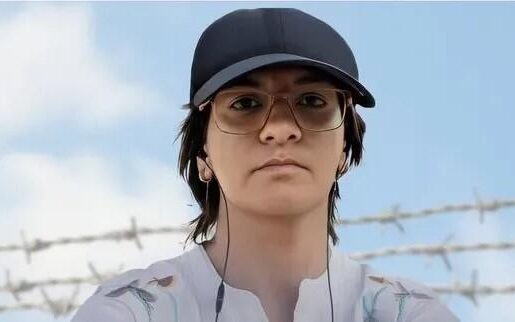Somayeh Rashidi, who died in Iran’s Qarchak Prison on September 25, 2025
Fears for Iran’s Political Prisoners After Israel’s 12-Day War
Women detainees are dying in Iran’s Qarchak Prison, notorious for its poor conditions.
In just over a week, three women perished from the denial of medical care in the overcrowded, disease-ridden prison.
On September 16, Soudabeh Asadi died. Three days later, Jamileh Azizi, held on financial charges, passed away. She had been transferred to the prison infirmary with symptoms of a heart attack, but doctors said there was nothing wrong and sent her back to her ward.
A fellow detainee said, “The women cried, screamed, protested…but nobody came. She died before our eyes. Her eyes remained open as they carried her out of the ward.”
On September 25, political prisoner Somayeh Rashidi passed away after authorities failed to transfer her in time to medical facilities.
Rashidi, 42, was seized in April 2025 in Tehran for writing slogans critical of government policies. Officers slammed her head against a wall, sat on her chest, and inflicted multiple blows to her face, legs, and abdomen.
She was imprisoned in Tehran’s Evin Prison and transferred to Qarchak following the Israeli attack on Evin in June. Her deterioating health was addressed with sedatives rather than treatment. On September 15, 2025, she suffered a seizure and was taken to hospital in a semi-conscious state. Doctors told her family that the delayed transfer had caused irreversible damage.
Forty-five women political prisoners in Qarchak issued a joint statement:
Multiple times in front of our eyes, especially in the last two months, she experienced severe seizures in short time intervals, and after being transferred to the infirmary, without being sent to the hospital for admission, without addressing her emergency condition…they returned her to the prison.
Nobel Peace Prize laureate Narges Mohammadi, on medical leave from imprisonment in Qarchak, summarized, “Detaining sick prisoners in the prisons of the Islamic Republic is a clear example of torture, and killing them by denying their right to medical care is an act of crime.”
The Hell of Qarchak
In a desert area 17 km (10.5 miles) south of Tehran, Qarchak was a poultry farm and then a men’s rehabilitation center. It was turned into a women’s prison in 2010.
Detainees who have reached their families report dangerously overcrowded wards which are filthy, infested with insects and pests, and lacking proper ventilation.
There are no windows in the facility. The large industrial sheds have a capacity of fewer than 100 people, but often hold more than 150 inmates. At times, up to 600 women are packed into them.
Lacking basic hygiene and necessities, detainees endure exploitation — including sexual abuse — to survive.
Qarchak also holds children, who live with their mothers until the age of two.
A former staff member said of the medical situation:
One of the prison’s most serious problems is poor medical care. The infirmary doesn’t even have a blood pressure monitor. Oxygen tanks are often empty, the ECG machine is broken, and no defibrillator is available. Transfers to hospitals face complicated procedures and are frequently blocked.
Medicine is in short supply — sometimes a single bottle of syrup is given to all prisoners with a common cold. Due to overcrowding, each prisoner is permitted only one infirmary visit per month. Even basic equipment, such as stretchers and wheelchairs, is missing, severely limiting urgent care.
Hunger Strikes in Protest
Nineteen detainees carried out a two-day hunger strike from September 30 to mourn Rashidi’s death. They protested the conduct of prison authorities, lack of accountability, and the failure to transfer them back to Evin Prison
Mehdi Farahi Shandiz, a teacher in Evin, has been on hunger strike since September 28 over the deaths and deprivation of medical care. Hamid Ardalan joined the protest:
I declare that until the women political and ideological prisoners are transferred to the women’s ward of Evin and provided with proper medical care, even if my corpse is left in your hands, I will not end my hunger strike.

